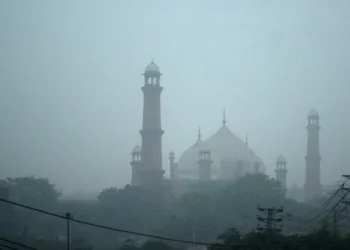Faisal Ali Ghumman
The global economic and trade outlook now-a-days seems to haunt developed and developing nations following major shift in US policy in the era of President Donald Trump.
On the one hand, the USA put its weight behind protectionism by raising tariffs on imports from the European Union (EU) and China, but on the other China stress on expanding free trade zones through its Road and Belt initiatives.
The ongoing tussle between the two biggest economies where has created a financial unrest in global economy there also provided an opportunity to the countries to establish new trade blocks, routes and corridors.
Among the comparatively less-hit economies across the globe is the United Arab Emirates (UAE), a country having seven federating units including oil-rich Abu Dhabi.
 The general consensus among the economists is that the UAE’s GDP is likely to remain around three percent by the end of 2018 and expected to jump to 3.5 percent by 2020- the year of International Expo Dubai.
The general consensus among the economists is that the UAE’s GDP is likely to remain around three percent by the end of 2018 and expected to jump to 3.5 percent by 2020- the year of International Expo Dubai.
The Dubai government is already investing huge amount on the preparations of the mega event as spending on employment-generating infrastructure relating to the expo this year is 20 percent more than the expenditure made in 2017.
The UAE Cabinet has recently announced long-term visas of up to 10 years. Until now, visas for expats have been valid for two or three years.
The decision to offer long-term visas to property investors, scientists and entrepreneurs is part of its ongoing efforts to support the country’s move towards a globally competitive knowledge economy and diversify its businesses away from the traditional reliance on oil.
[bs-quote quote=”The UAE’s non-oil economy is likely to “turn a corner” next year with Dubai’s Expo 2020 infrastructure projects” style=”style-13″ align=”left” author_name=”Faisal Ali Ghumman” author_job=”Editor” author_avatar=”https://dubainews.tv/wp-content/uploads/2018/11/Faisal.jpg” author_link=”https://twitter.com/alfaysal77″][/bs-quote]
Despite certain challenges like corporate job losses, introduction of value-added tax (VAT) and slowing real estate sector in the ongoing year, the economic activity is likely to accelerate from 2019, analysts predict.
The UAE’s non-oil economy is likely to “turn a corner” next year with Dubai’s Expo 2020 infrastructure projects, changes to visa rules and increased government spending set to boost growth, according to a Bank of America Merrill Lynch (BofAML) research note.
The Expo 2020 event in Dubai could drive up GDP growth by 2 percentage points between 2020 and 2021, the report said, by boosting job creation, consumption and tourist numbers.
The event, whose preparations are gaining momentum day by day and is likely to be participated by over 180 countries, will send a message to the entire world that the 2008 global economic recession and recent global economic outlook connecting to US-China trade war and Brexit could be countered with such business environment.
The mega event to be participated by international delegates and business people would not only open new avenues of business deals and pacts among companies but also would provide a platform for experts to discuss new strategies and ideas to overcome global financial recessions which impact negatively the nations at grass-root levels.








 United Arab Emirates Dirham Exchange Rate
United Arab Emirates Dirham Exchange Rate

